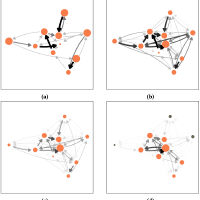Dr. Giona Casiraghi
Senior Researcher

Research Interests
I work on two tighly connected topics. How to define and quantify resilience, in complex systems in general and in social organisations in particular. How to model complex systems from the data, to perform a data-driven study of their properties.
Resilience of Social Organisations
We aim at an understanding of how different online social organisations withstand and recover from internal and external shocks, and how such a resilience can be improved. To do, so we investigate how different resilience metrics can be computed from data. Our research is deeply rooted in data science and the data-driven modelling of complex systems. We use and develop new methodologies from network science, multivariate statistics, machine learning, and statistical physics.
Statistical Models for Network Data
To allow the study of complex dynamical systems such as social organisations, we need inferential models aimed at temporal and multi-edge network data. I am interested in the development of quantitative methods for the analysis of repeated interactions arising in social, economical, and political networks. A second line of research I follow focuses on modelling and understanding temporal correlation observed in temporal network data, such as distribution networks and communication networks.
Part of my work revolves around the generalised hypergeometric ensemble of random graphs, gHypEG for short. In its simplest form, gHypEG provides a model preserving vertices’ activities. Doing so, it maps the standard configuration model to an urn problem. Pairs of nodes are like balls in an urn. The more frequent are specific balls, the more likely are edges to be sampled. In its general form, edge probabilities are again defined by balls’ frequencies, but also by independent edge propensities estimated from data. The higher the propensity, the larger the ball, the easier it is to sample the edge. The main applications of gHypEG, are towards the inference of significant relations from observed interactions, and the analysis of complex networks by means of network regressions.
The R package ghypernet provides an Open Source implementation for R of a set of functions to work with gHypEG models.
GHYPERNET Tutorials and Material
The following links contain a collection of tutorials and material about the ghypernet R package.
Tutorial to network regression models: https://sg.ethz.ch/nrm-tutorial/
Companion git repository for the 2019 EUSN Workshop in Zurich: https://github.com/sg-dev/EUSN2019_r-ghypernet
Repository for the EuroCSS Tutorial “Introduction to Multi-edge Network Inference in R Using the Ghypernet-package”: https://github.com/sg-dev/EuroCSS2019_r-ghypernet
GitHub repository for ghypernet: https://github.com/gi0na/r-ghypernet
Manual and Vignettes of the R package: https://ghyper.net
Giona's most recent publications
US tariffs jeopardize medicine supply chains
Science - 2025

Empirical networks are sparse: Enhancing multiedge models with zero-inflation
PNAS Nexus - 2025
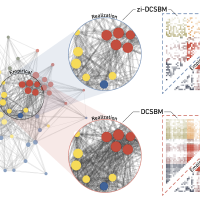
Disentangling the Timescales of a Complex System: A Bayesian Approach to Temporal Network Analysis
ArXiv Preprint - 2024
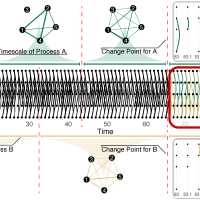
Adapting to disruptions: Managing supply chain resilience through product rerouting
Science Advances - 2024
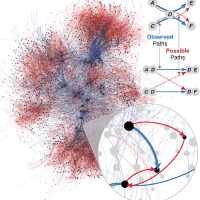
The nonlinear economy (I): How resource constrains lead to business cycles
Chaos - 2024
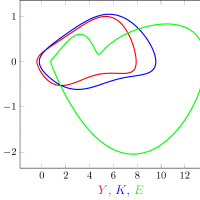
Shock! Quantifying the Impact of Core Developers' Dropout on the Productivity of OSS Projects
Companion Proceedings of the ACM on Web Conference 2024 - 2024
Reconstructing signed relations from interaction data
Scientific Reports - 2023
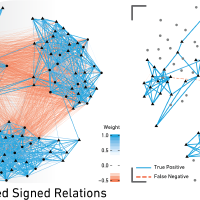
Predicting variable-length paths in networked systems using multi-order generative models.
Applied Network Science - 2023
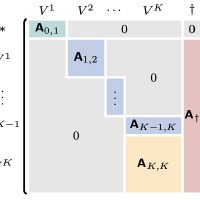
Spillover of Antisocial Behavior from Fringe Platforms: The Unintended Consequences of Community Banning
Proceedings of the International AAAI Conference on Web and Social Media - 2023
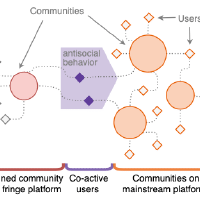
Struggling with change: The fragile resilience of collectives
Perspectives on Psychological Science - 2023
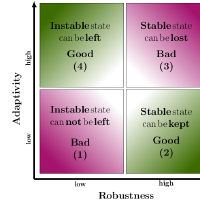
Understanding Online Migration Decisions Following the Banning of Radical Communities
Proceedings of the 15th ACM Web Science Conference 2023 - 2023
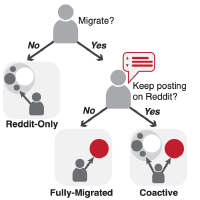
Locating Community Smells in Software Development Processes Using Higher-Order Network Centralities
Social Network Analysis and Mining - 2023
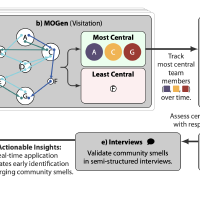
Modeling social resilience: Questions, answers, open problems
Advances in Complex Systems - 2022
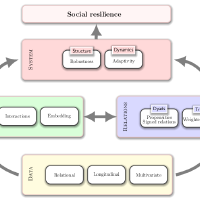
Comparing Online and Offline Political Support
Swiss Political Science Review - 2022
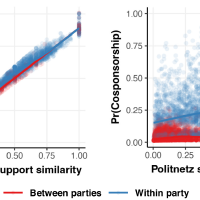
The downside of heterogeneity: How established relations counteract systemic adaptivity in tasks assignments
Entropy, 23(12), 1677 - 2021
